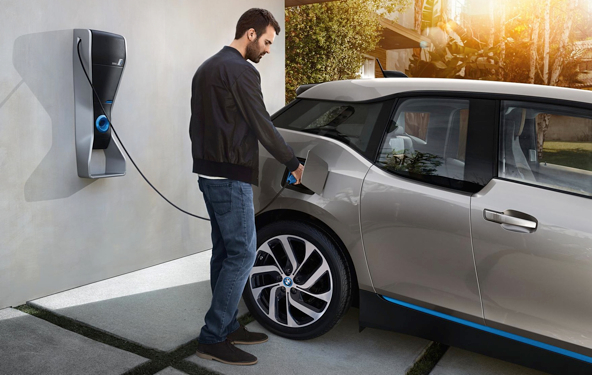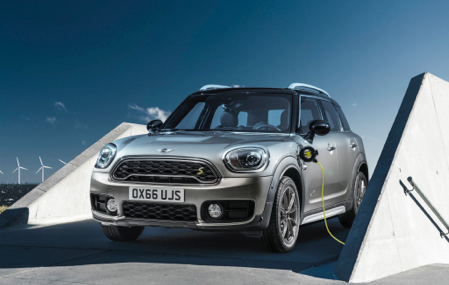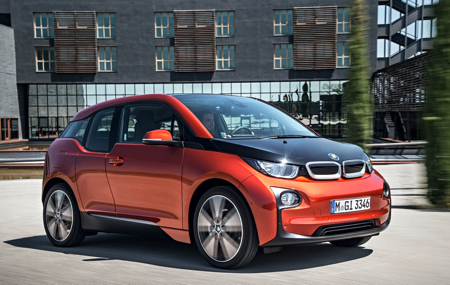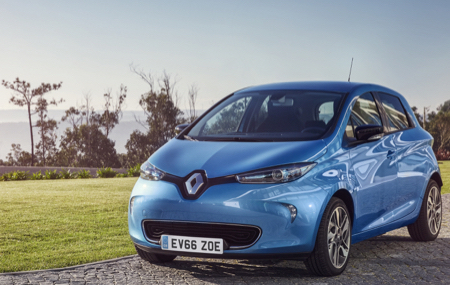UK to ban petrol and diesel from 2040 26 | 07 | 2017

SALES OF PETROL and diesel cars will stop in Scotland from 2040. The Westminster Government today announced that from 2040, only electric cars and vans will be sold from new across the UK. (Related: Electric Mini to be built in the UK)
The statement, which is part of Westminster’s £3 billion plan to tackle air pollution — and has been triggered by the unsubstantiated claim that air pollution accounts annually for 40,000 deaths in the UK — also clarifies the ban won't affect cars with hybrid and plug-in hybrid drivetrains, but rather only "conventional petrol and diesel cars".
The Government has not confirmed the much speculated ‘diesel scrappage scheme’ for older diesel cars, but it’s understood this will be reconsidered in the autumn. (Related: Renault Scenic and Grand Scenic go hybrid)
Ministers have also unveiled a £255m fund to help councils tackle emissions from diesel vehicles. The government will later publish its clean air strategy, favouring electric cars, before a High Court deadline.

In the next 23 years, car buyers face a seismic change in not only the cars they run, but whether they buy or rent.
The figures highlight the change which needs to take place: so far this year, only around 4% of all new car sales have been plug-in hybrids or fully electric. Only 25% of those sales have been fully electric cars, including the BMW 13 and Renault Zoe (both pictured). (Related: Roadtest — Renault Zoe Dynamique R90 Z.E)
Predictions of future electric car sales vary, and perhaps not surprisingly are led by companies with a vested interest in the infrastructure.
Charging point firm Chargemaster has suggesed the first one million plug-in hybrid or electric car sales will be achieved in the UK in 2022. If that figure is achieved, it will still only correlate to around 10% of all new car sales being fully electric.
Last year, 2,692,786 new cars were registered in the UK. There are around 40m cars on UK roads today.

In 2016, diesel and petrol cars continued to be by far the most popular fuel types for consumers with market share at 47.7% and 49.0% respectively. However, according to the Society of Motor Manufacturers & Traders (SMMT), alternatively fuelled vehicles (AFVs) experienced a strong uplift in demand, up 22.2% across the year. Plug-in hybrids and petrol electric hybrids, in particular, experienced significant growth, with demand up 41.9% and 25.1% respectively.
That’s all very laudable, but according to the SMMT — the authority on new car registration in the UK — just over 10,000 motorists chose to go fully electric in 2016, though the figure did show a 3.3% increase on 2015. That’s not a lot.
Not surprisingly, SMMT CEO Mike Hawes warned that the automotive sector in the UK could be 'undermined' if the industry was not given enough time to adapt to the new policy.

“Outright bans risk undermining the current market for new cars and our sector which supports over 800,000 jobs across the UK,” Hawes said, “so the industry instead wants a positive approach which gives consumers incentives to purchase these cars. We could undermine the UK’s successful automotive sector if we don’t allow enough time for the industry to adjust.
“The UK government’s ambition for all new cars and vans to be zero emission by 2040 is already known. Industry is working with government to ensure that the right consumer incentives, policies, and infrastructure is in place to drive growth in the still very early market for ULEVs in the UK.
“However, much depends on the cost of these new technologies and how willing consumers are to adopt battery, plug-in hybrid and hydrogen cars. Currently demand for alternatively fuelled vehicles is growing but still at a very low level as consumer have concern over affordability, range and charging points.”
The announcement comes just days after Mercedes confirmed it will switch to the all-electric Formula E Championship in 2019, joing other manufacturers including Audi, BMW, DS, Jaguar, Mahindra, NextEV and Renault in the series.
Related: Mercedes switches to Formula E
Keep up-to-date with all the latest news by following us on twitter.com/Scotcars
Jim McGill